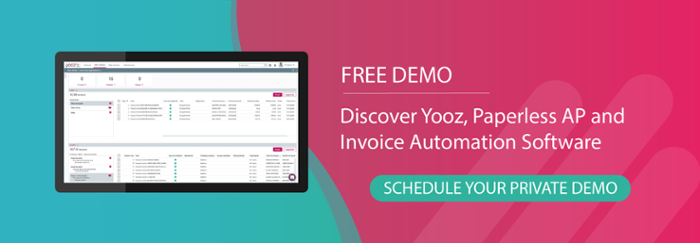The Time for Overcoming the Struggle of Financial Reconciliation with A Zero-Day Close is Here
According to a survey of over 1,400 finance and accounting professionals, 93% of finance leaders are under pressure to accelerate the closing process. Over 60% say that accelerating the closing process would allow more time for data analysis to uncover insights or trends.
In today’s fast-past world of finance, agility and data-driven decision-making are key. The quicker that the finance and accounting teams can produce accurate financial data and reports, the faster that information can be incorporated into the company’s strategic planning efforts.
This means that every inefficiency, especially process inefficiency, becomes a bottleneck to progress. The traditional approach to financial reconciliation is one such example and it is in desperate need of a makeover.
What is a Financial Close?
Financial closing is a regular business accounting process conducted at the end of a defined accounting cycle (usually monthly, quarterly, or annually), done to verify and if necessary, adjust account balances.
Once the account balances are finalized, they are used to prepare financial statements including the balance sheet, income statement, and cash flow statement. These reports provide an overview of the business’ financial position during the specified accounting period.

Understanding the Impact of Transaction Timing
Reconciling financial statements at the end of reporting periods has historically consumed valuable time and resources. Since it is virtually impossible for every type of transaction to impact the general ledger at exactly the same time, updates to the ledger are often the cause of much pain for the involved department.
Consider the following: The later that a transaction impacts the ledger, the more work is needed to update the ledger and ensure that the entries are correct. Updating incorrect entries can require tracking the complete history of the entry and if necessary, then changing the older ledger entry. This can be a time-consuming process for the finance function and, if a large number of corrections are required, can lead to a delayed month-end close and hold up the reporting period. In fact, it could take several days or even weeks to complete, which then slows the analysis and integration of data into strategic planning efforts. 
Thanks to progress in Artificial Intelligence (AI), Machine Learning (ML), and automation in general, achieving a closer-to-zero day close is possible by ensuring that transactions accurately impact the ledger accurately at the earliest opportunity. In fact, these technological advancements have made continuous financial reporting closure achievable, marking the realization of the elusive zero-day close.
What is a Zero-Day Close
A zero-day close process, also known as a continuous or touchless close, refers to the point in which a transaction is completed exactly at the close of business. If this is accomplished every day, the records of transactions can be closed, the general ledger can be updated without the need for further work, and financial statements can be finalized on the same day that the accounting period ends. The entire business process thus goes from painful and time-consuming – days to weeks - to virtually instantaneous.
 By completing the closing process on the same day that the accounting reporting period ends, companies have access to up-to-date information. This drives better business insights and empowers accounting and finance teams to be a value-creation partner for the organization.
By completing the closing process on the same day that the accounting reporting period ends, companies have access to up-to-date information. This drives better business insights and empowers accounting and finance teams to be a value-creation partner for the organization.
Furthermore, by completing the closing process so quickly, organizations can provide timelier and more accurate financial information to stakeholders such as finance executives, investors or regulatory agencies.
Benefits of a Zero-Day Close Approach
It all sounds great, but what are the real benefits to this efficient ledger updating known as a zero-day close approach? In fact, there are many that revolve around enhancing data integrity and accuracy, improving operational efficiency and costs savings, and facilitating timely decision-making.
- Timely reporting: A zero-day close means companies can report their financial performance quickly and use accurate information for decision-making.
- Reduced errors: Automated and streamlined workflows reduce the chance of errors, increasing the accuracy in financial reporting.
- Improved efficiency: Eliminating delays in the closing process means that organizations can free up resources and focus on other, more strategic activities.
- Enhanced decision-making: timely access to accurate financial information means that management can make more informed strategic decisions.
- Frees Resources: a quick close frees up financial resources that could be better focused on creating additional value
- Increased employee morale: Eliminating time-consuming, mundane processes frees employees to focus on other, more productive and less routine tasks. This in turn helps with retaining employees.

Challenges to Achieving a Zero-Day Close
Of course, there are also challenges to overcome. Let’s review some of the hurdles that organizations face:
- Data Complexity and Volume: Accurate data entry, validation, and reconciliation within a specific timeframe becomes increasingly complex with greater volumes of data.
- Process Standardization: Achieving a zero-day close requires having standardized processes across departments. Variations in workflows, approval cycles, and reporting formats can reduce efficiency.
- The Human Aspect: Even with automation, some level of human intervention is necessary. This means that staff availability and expertise are important factors to consider.
- System Integration Challenges: Integrating different software systems can be difficult, especially with different platforms in different departments. The resulting lack of seamless communication can result in reporting delays.
- Quality Assurance and Reconciliation: Rushing through any closing process can lead to errors. There needs to be a balance between speed and accuracy.
- Global Operations: Organizations with global operations have additional considerations, such as time zone differences and evolving regulatory environments. Coordinating closing activities across regions can cause a delay, and it is crucial to ensure timely submissions.
- Technology Adoption and Resistance: Implementing new technologies requires well-executed change management. Resistance from employees accustomed to more traditional methods of accounting can slow down adoption.
- Cultural Shift: Achieving a zero-day close requires a cultural shift in the organization. There needs to be a commitment to continuous process improvement and also convincing stakeholders to embrace the changes.
How to Achieve a Zero-Day Close
The ability to wrap up financial books and finalize statements on the same day that the accounting period ends is a game-changer for organizations. But how to achieve this elusive zero-day close? The answer is by leveraging technology and streamlining processes.
Let’s consider the impact of accounting and technology in terms of two categories: relentless automation and modern technology.
Relentless Automation
Relentless automation refers to the continuous use of technology and intelligent automation systems to streamline processes, reduce manual effort, and optimize efficiency. It includes:
- Workflow Automation: Automated workflows replace manual, labor-intensive process tasks with efficient, rule-based processes. Data flows seamlessly and reconciliations, once a time-consuming and occasionally painful ordeal in manual processes, occurs automatically. These automated workflows ensure that real-time information is easily available.
- Data Integration: Siloed data is the enemy of efficiency. Modern systems integrate data from various sources – ERP systems, individual databases, etc. – into a single, unified platform. Having all the information available at your fingertips further accelerates the closing process.
- Robotic Process Automation (RPA): RPA tirelessly performs repetitive tasks such as data extraction, validation, and posting. They work 24/7, leaving no room for any delays and helping to ensure accuracy and speed.
Modern Technology
Advances in technology play a pivotal role in achieving a zero-day close.

- Artificial Intelligence (AI): Among a wide range of applications, AI algorithms analyze historical data, identify patterns, and predict anomalies. They help in decision-making and routing, flagging any potential issues.
- Machine Learning (ML): ML models constantly learn from data, adapting and improving over time and fine-tuning processes for efficiency.
- Cloud Computing: Cloud-based solutions provide easy scalability, flexibility, and accessibility. By storing data in a secure, centralized location, they enhance collaboration across departments and geographical locations. Furthermore, they empower secure access to real-time data from anywhere, anytime.
Organizations that master these two areas – the relentless pursuit of automation and embracing modern technology – gain a competitive edge and increase their financial agility.
Conclusion
Closing the books allows organizations to make informed decisions based on accurate financial information. Fortunately, getting there no longer has to be a painful, time-consuming process. Rapid advancements in technology and automation have made the idea of a zero-day close a reality.
This means that in today's business environment, organizations have access to real-time insights and transaction-level detail, enabling them to highly complex processes to quickly close the books and provide better business insights.
Let Yooz show you how end-to-end automation can help you do the same!








